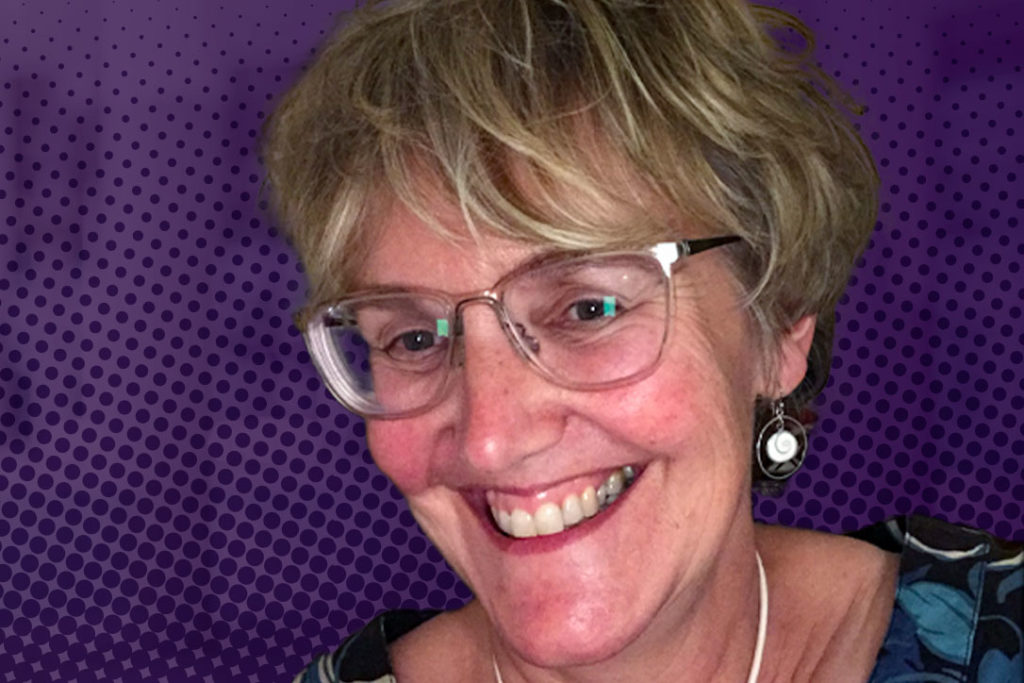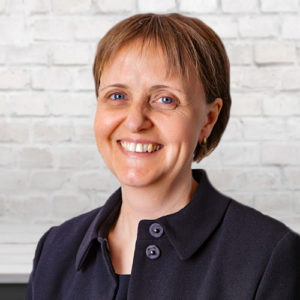Nicola Haywood-Alexander is the latest member of the Highland Marketing advisory board. Lyn Whitfield talks to her about her career, the Tech4CV19 initiative, and why the NHS needs a new kind of partnership with health tech.
People find their way into healthcare technology different ways; but even allowing for that Nicola Haywood-Alexander’s background is pretty unusual. Her first degree was in electroacoustic engineering and she spent the first decade of her career working in engineering research and consultancy.
“It is unusual, but it was a really interesting degree,” she laughs. “Acoustic engineering touches on so many aspects things not just technology: the environment, individuals, and how they interact.”
For example, Nicola worked on the project to insulate Manchester’s Bridgewater Hall from noise and vibration. Not least from the tramline that “we discovered the council was planning to build just 300 yards away.” (The solution was to float the entire structure free of the ground on almost three hundred giant springs, so there was no rigid connection between the 22,500-ton building and its foundations).
Eventually, Nicola’s expertise in problem solving, analysis mathematical modelling, and project management took her into local government, to work on service improvement, performance management and digital transformation. After which, her expertise in digital transformation took her into the education sector and, eventually, the NHS when she became chief information officer for Sheffield Health and Social Care NHS Foundation Trust in 2016.
NHS culture shock
Nicola says she was “really keen” to take up a role in the NHS, because her mother was an innovative leader in paediatric physiotherapy, giving her a “lifelong relationship” with the health service. But moving into the world of NHS IT was eye-opening.
“I found the trust was working with a 2003 Outlook platform that had not been upgraded at all,” she says, “and when I opened up any laptop a Post-It note would fall out that, of course, turned out to have the password on it.”
Addressing security went straight to the top of the priority list alongside another big challenge; the trust’s home-grown electronic patient record. “There were a lot of good things about Insight [the trust’s EPR],” she reflects. “It had been one of the first of its kind and the clinical staff loved it – rightly, since they had helped to design it.
“Also, the IMT team were extremely skilled technically and were able to keep it going and get around its problems.” But… “It was so old it could have failed at any time.” Nicola oversaw a successful bid to become global digital exemplar programme fast follower, to enable the old system to be replaced with an open standards EPR architecture.
Interoperability; an old challenge in a new setting
Meanwhile, she was seconded to the role of digital director for the South Yorkshire and Bassetlaw Integrated Care System. There, she was a member of the team that led to the Yorkshire and Humber bid to become a local health and care record exemplar.
As chair of the Yorkshire and Humber Care Record Co-Design Authority and chair of the Yorkshire and Humber Public Secure Network Partnership she found a lot of parallels between what was happening in integrated healthcare and what higher education had already experienced.
“I saw three major policy changes while I was working in higher education – growth, austerity driven efficiencies and then student fees,” she says, “and this caused the focus to shift from academic subject to the student journey – significantly!
“Strategy and performance came to be focused on the student experience and so did digital. We moved from a world in which ‘digital’ meant virtual learning environment to one in which it meant fully integrated system architecture with enterprise service buses, customer relationship management systems and portals.”
This meant integrating student records, learning platforms, finance, admission, support, library and graduation systems, developing the application programming interfaces to do the job and overlaying everything with a life-long relationship management capability.
“Even before I joined the NHS, as a user of healthcare services, I could see that there was a real need for interoperability, and relationship management,” she says, “but getting follow through on interoperability has been a challenge, and there has been no take up of the latter.” Still, she adds, “I’m happy to ‘bore people silly’ about its value and application.”
Covid-19: an unfinished health tech revolution
The NHS response to the coronavirus outbreak has cut through some of the challenges to pushing ahead with digital. A willingness to work remotely, digital first outpatients, and virtual consultations have changed working patterns and patient expectations – probably forever.
Yet there is a growing sense, articulated by Highland Marketing’s advisory board, that a second wave of change and innovation is needed to create properly transformative, digital first pathways.
Nicola says the apps in this second wave need to be co-designed with users, so they work for everybody, including those with disabilities, learning difficulties, frailty and mental health issues. Smaller, more innovative companies may be better placed to take this approach.
Yet many of the firms drafted in at a national level to respond to the Covid-19 crisis have been large and even global. Helping SMEs to get a look in was one of the drivers behind the Tech4CV19 initiative, which grew out of social media discussions about how suppliers could support digital leaders on the frontline, and about how digital leaders could help SMEs to scale-up to meet their requirements.
Tech4CV19 quickly became a Slack site with Google sheets outlining products and ideas. It had 350 members within a week and then kept growing. Now, Tech4CV19 is acting as a matchmaker and building a “CRM-type engine” to support its work and looking at options to consolidate its future.
“The intention is for it to become a community interest company that will be host to the whole health care community,” Nicola says. “It can be a peer-to-peer think-tank for the digital health and care space, a 24-7 online expo, a broker for partnerships, mentoring and support, and a space in which colleagues can generally inspire one another.”
Health tech needs to influence; not just deliver
The past few months have been tumultuous for the UK, its government, health services, and IT industry, and it would be a missed opportunity if none of them changed on the other side of the coronavirus emergency. Nicola argues that as things settle, the health tech industry needs to forge a new relationship with health and care services.
“I have worked in many different sectors in my career, and to me the tech industry that serves health does not seem as pro-active as the tech industry that serves those other sectors,” she says. “It tends to wait for the NHS to set policy and strategy, and then respond.
“Whereas, in engineering, or finance, or retail, or leisure, or transport, or even education, industry helps to shape thinking. I wouldn’t for a moment say that tech suppliers should determine the nature of health and care services – that’s always going to be the domain of policy makers, regulators and the professional bodies.
“But when it comes to technology, I think there is an opportunity to build on some of the progress that has been made by suppliers working with the NHS on open standards and coding to enable interoperability. It should be possible to take that forward to enable industry to inform policy in the way it does in other sectors. No digital leader should be afraid to ask for a seat at the table.”
Having worked in sectors that are further along their digital journeys, this is where Nicola would like to see health and care technology go next; while taking patients and citizens along with it.
“I want to engage with others in debates about the direction that digital health is going in, and my particular interest is to widen the scope to include wider aspects of health and care needs across society,” she says. “If we are going to develop meaningful and fulfilling partnerships, they have to work for everyone and each other.”



